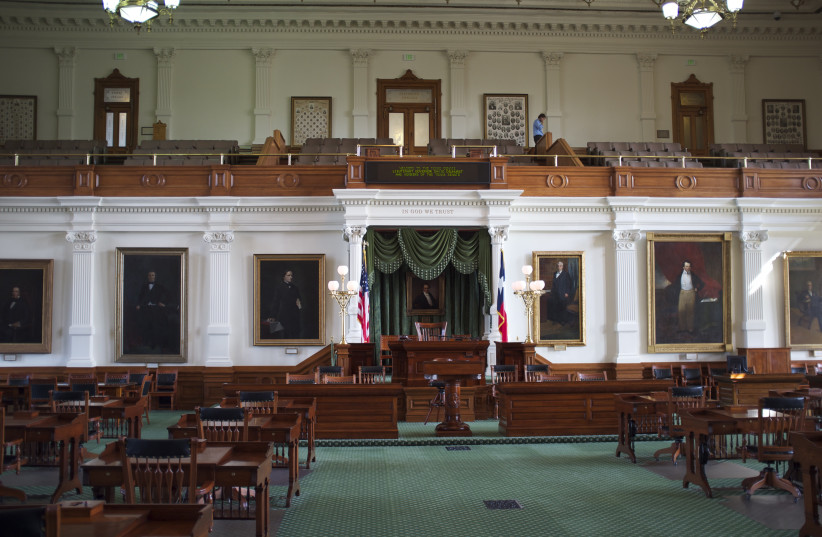The Texas Senate approved two bills on Thursday that would require public schools to prominently display the Ten Commandments and to set aside prayer and Bible study time for students and employees.
The first bill requires that a "durable poster or framed copy of the Ten Commandments" must be displayed in "a conspicuous place" in every classroom in every public school. The copy of the Ten Commandments must be at least 16 inches wide and 20 inches tall, according to the bill.
The bill will take effect in the next school year.
The second bill would allow the board of trustees of a school district or the governing body of an open-enrollment charter school to require all public schools under their jurisdiction to provide students and employees with an opportunity to participate in a period of prayer and reading of the Bible or other religious text during the school day.
The bill does prohibit students from taking part in such prayer or Bible reading sessions unless their parent or guardian submits a signed consent form. The bill also prohibits prayer or the reading of the Bible or another religious text over a public address system.

The prayer or Bible reading session also cannot interfere with instructional time.
The bill additionally amends the state education code so that "encouraging" a student to engage in or refrain from prayer or meditation during a school activity would no longer be prohibited.
Texas and church and state
Texas state authorities have repeatedly pushed to insert religion into public schools, despite the First Amendment which forbids making a law "respecting an establishment of religion, or prohibiting the free exercise thereof."
In 2021, the Texas Senate passed a law requiring public schools to display posters reading "In God We Trust" if such posters are donated to them. A number of Christian organizations have worked to donate such posters to various school districts across the state.
Texas Sen. Phil King, who authored the bill on the Ten Commandments displays, argued earlier this month that the Supreme Court's ruling in favor of Joe Kennedy, a football coach who was fired after kneeling after games for prayer, cleared the way for his bill, according to the Texas Tribune.
In Kennedy's case, the Supreme Court ruled that he was praying as a private citizen and that it was unreasonable for the school he worked for to argue that the prayer could be seen as the school endorsing religious behavior in a way that violated the First Amendment.
Matt Krause, an attorney with the First Liberty Institute, a conservative religious rights legal organization, welcomed King's bill, stating "We think there can be a restoration of faith in America, and we think getting the Ten Commandments on these walls is a great way to do that. Not only do we think it’s a good thing, but it’s constitutional and legal as well, thanks to the Kennedy decision overruling and disposing of the Lemon test."
Texas Lt.-Gov. Dan Patrick welcomed the passage of the two bills, stating "Allowing the Ten Commandments and prayer back into our public schools is one step we can take to make sure that all Texans have the right to freely express their sincerely held religious beliefs."
“I believe that you cannot change the culture of the country until you change the culture of mankind. Bringing the Ten Commandments and prayer back to our public schools will enable our students to become better Texans.”
John Litzler, general counsel and director of public policy at the Texas Baptists Christian Life Commission, expressed concerns about the bill, stressing that parents, not schools, should be discussing religion with their children, according to the Texas Tribune.
"I should have the right to introduce my daughter to the concepts of adultery and coveting one's spouse,” said Litzler. “It shouldn’t be one of the first things she learns to read in her kindergarten classroom.”
